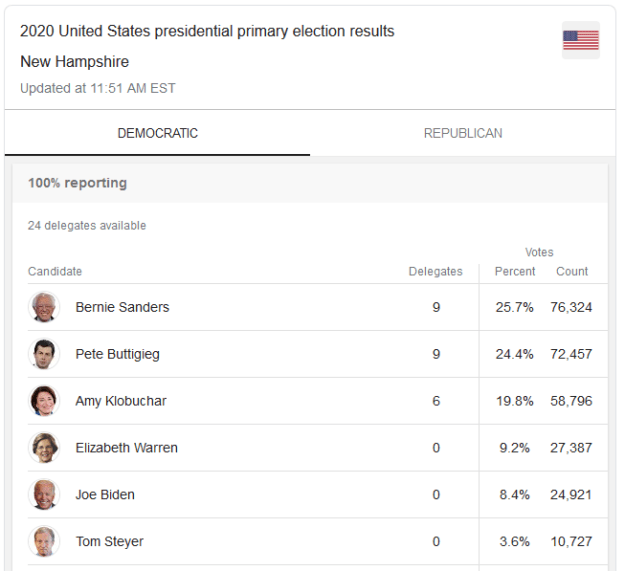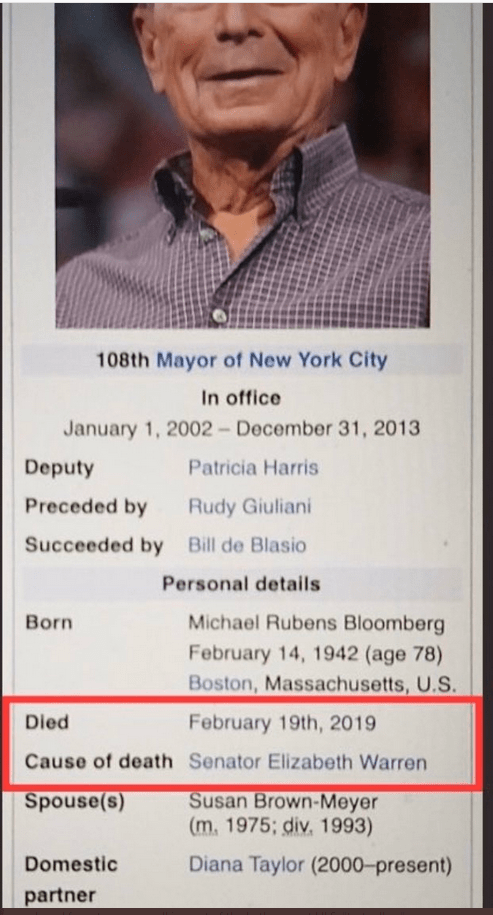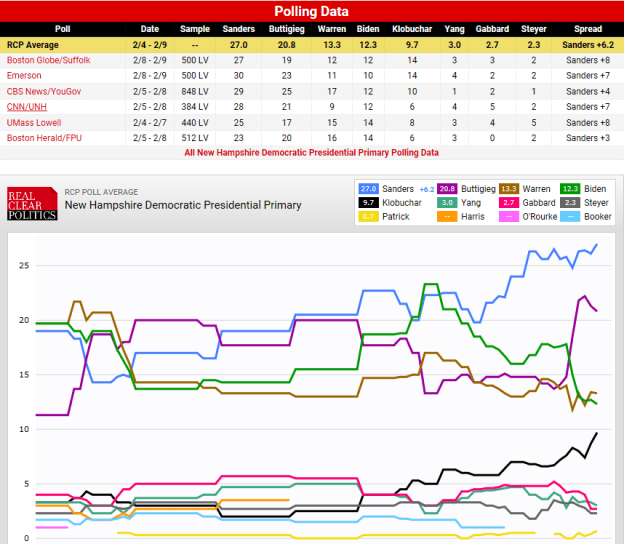
Since last we checked in, there have been two more contests, the New Hampshire primary and the Nevada caucuses.
New Hampshire continued Iowa’s theme of “near photo finish” but advantage Sanders, and also featured a dismal fifth place by Joe Biden that opened up the question of whether he’s in complete free-fall:

Nevada featured a strong win by Sanders across multiple demographics, and his third popular vote victory of the first three. Which, following on the heels of his coming in to the lead in national polling, caused some to wonder whether he might deliver a de facto knockout punch on Super Tuesday:

Oh, and we’ve also had some further attrition due to New Hampshire! Goodbye Bennet, Patrick, and Yang! Delaney, I didn’t even notice you’d dropped out back in January! Of the 28(!) candidates we’ve had at one time or another, with a simultaneous field as large as 25, there are now only eight remaining. Eight is fewer than 28, but…

What does how things are looking going in to South Carolina tell us about who that one is likely to be?
After placing fourth in Iowa and fifth in New Hampshire, once front-runner Biden began to look like he might totally collapse. But, three (from his campaign’s perspective) useful things in a row happened. First, his Nevada showing, while not great, was a step up from the “on life support” numbers of Iowa and New Hampshire.
Second, the “moderate/establishment” vote had clearly started to flee from Biden to Michael Bloomberg, who isn’t on the ballot in South Carolina, but does serve as a kind of anti-barometer of how Biden is doing overall:

However, as his star rose, rumblings also rose about whether Bloomberg’s past association with racially troubling policies and statements, sexual harassment allegations, and, well, actually having been a Republican, might make him unacceptable to too wide a portion of the Democratic base. I can testify that on my personal social media feed, many people who are not at all the “usual suspects” for this kind of thing were saying that he could be their exception to “I will vote for whoever the nominee is”.
This came to a head on 2/19, with Warren brutally and effectively taking Bloomberg to task during his first debate appearance. It was so effective that, as some online pranksters put it:

Third, Biden has attracted the support of one of the most influential endorsements there is in South Carolina, third-ranking House member Jim Clyburn:

Was it that Nevada stopped the bleeding? Bloomberg being rapidly discredited as an alternative caused some of the nervous voters in search of a moderate to flock back to Biden? The networking and attention Biden has sunk into South Carolina paying off? Whatever the cause, he seem to be having a resurgence there just when he needs it most:

While just a few days ago it seemed like Biden might be headed for an embarrassing single-digit win or even a devastating surprise loss, I think he’s probably back on track for a strong double-digit win in South Carolina. And, of course, the real significance of South Carolina has always been momentum going in to Super Tuesday, and especially what it tells us about how well Biden is doing with the African-American voters he’s counting on to win Southern Primaries that day.
In which regard, if a big win in South Carolina does presage Southern strength for him, he could pick up as many as six states that day:

This doesn’t change the fact that Sanders remains in a very strong position to also pick up a lot of delegates that day, quite probably even more than Biden. But South Carolina’s results this weekend may tell us a lot about whether we’re likely to see a “knockout punch” by Sanders on Tuesday of next week, or more like an almost-draw that keeps us all slogging through for a while to come.
Let’s check in again on Monday!






